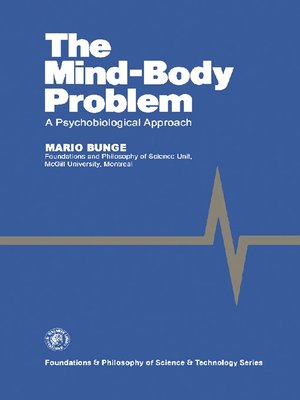
Sign up to save your library
With an OverDrive account, you can save your favorite libraries for at-a-glance information about availability. Find out more about OverDrive accounts.
Find this title in Libby, the library reading app by OverDrive.



Search for a digital library with this title
Title found at these libraries:
| Loading... |
The Mind–Body Problem: A Psychobiological Approach examines the mind-body problem from a psychobiological perspective. It intends to show that the idea of a separate mental entity is not only unwarranted by the available data and the existing psychological models, but collides head-on with the most fundamental ideas of all modern science and is thus a stumbling block to progress. The book abandons ordinary language in favor of the state space language, which is mathematically precise and is shared by science and scientific philosophy. Comprised of 10 chapters, this monograph begins with an overview of the mind-body problem and its main proposed solutions, classified into main genera: psychophysical monism and psychophysical dualism. In particular, ten views on the mind-body problem are analyzed, along with three main varieties of materialism with regards to the problem: eliminative, reductive (or leveling), and emergentist. The discussion then turns to the notion of a concrete or material system, based on the assumption that behavior is an external manifestation of neural processes. Subsequent chapters explore the specific functions of the central nervous system; sensation and perception; behavior and motivation; memory and learning; thinking and knowing; and consciousness and personality. The book also considers sociality and social behavior in animals before concluding with an assessment of a psychological explanation of the mind, with emphasis on dualism and monism. This work will be of interest to students, academicians, practitioners, and investigators in the fields of psychobiology, psychology, neurophysiology, and philosophy.






